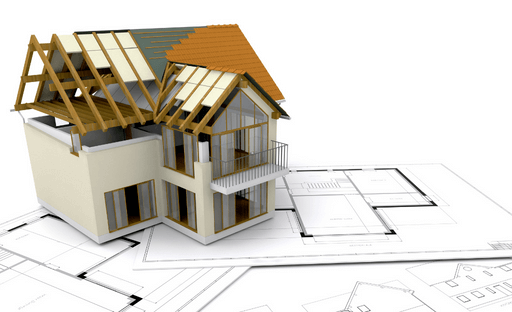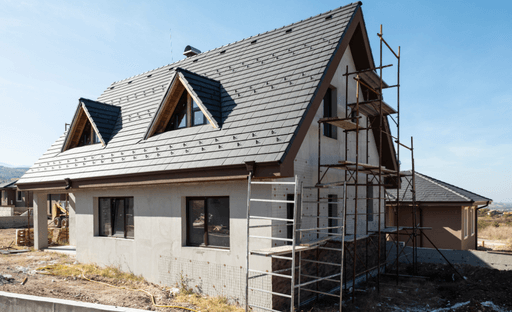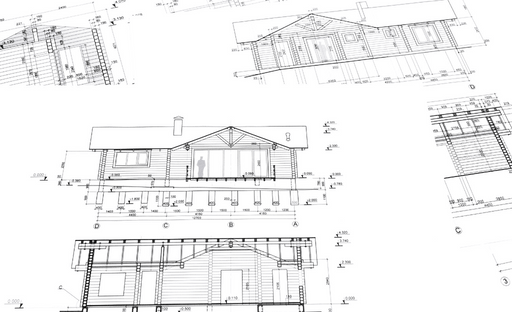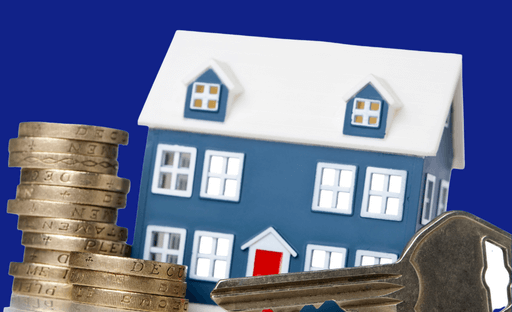Self-build homes cost uk
Self-building your own home is an exciting and rewarding experience, but it can also be a daunting prospect. With the cost of self-build homes in the UK varying significantly depending on factors such as location, materials used, and labour costs, it can be difficult to know how much you should budget for your project. In this article, we will explore the true cost of self-build homes in the UK and provide advice on ways to reduce expenses when building your own home. We will also assess both the benefits and drawbacks of constructing a self-built home before providing guidance on how to budget for a successful self-build project.
Self-build homes are becoming increasingly popular in the UK, as more people choose to take on the challenge of designing and constructing their own homes. While this can be an incredibly rewarding experience, it is important to consider all aspects of the project before taking it on – including cost.
The cost of building a self-built home varies widely depending on the location, size, materials, and level
of customization. However, self-build homes can be more affordable than buying an existing home or
commissioning a custom home from a builder.
Self-build homes are often seen as a way to increase sustainability, as owners can choose eco-friendly
materials and incorporate renewable energy systems into their homes.
The cost of a self-build home will depend largely upon your individual requirements and preferences. The size and complexity of your design will have a significant impact on overall costs, as well as any additional features you may wish to include such as energy efficiency measures or renewable technologies. It is also worth noting that while labour costs can vary significantly depending on location, materials tend to remain relatively consistent across the country.
When budgeting for a self-build project it is important to factor in not only construction costs but also associated fees such as planning permission or building regulations approval which could add up quickly if not taken into consideration from the outset. Additionally, there may be extra expenses incurred during construction due to unforeseen circumstances or changes made along the way – so make sure you build some flexibility into your budget!
It’s worth researching different options when sourcing materials for your build too; buying direct from suppliers rather than through contractors could help reduce overall costs significantly without compromising quality – although this approach does require more time investment upfront in order to find reliable sources at competitive prices!
Finally, remember that while self-building might seem like an expensive undertaking initially – once complete you should have created yourself a beautiful customised home with no one else’s stamp on it – something that money simply cannot buy!
Uncovering the True Cost of Self-Build Homes in the UK

Self-build homes are becoming increasingly popular in the UK, as more people look to take control of their own home-building projects. But what is the true cost of a self-build? This article aims to uncover the hidden costs associated with these types of builds and provide insight into how much you can expect to pay for your project.
The first factor that affects the cost of a self-build is location; if you’re looking at building on land in an area with high property prices then this will naturally increase your budget. In addition, planning permission and other legal requirements may also add additional costs – so it’s important to factor these into your calculations before starting out.
Once you have established where and how big your build will be, it’s time to consider materials and labour costs. The type of material used for construction has a huge impact on the overall price; timber frame buildings tend to be cheaper than brick or stone structures but require more maintenance over time – something that should be taken into account when calculating total costs. Labour costs vary depending on who carries out the work; hiring professional tradespeople can help ensure quality results but comes at a higher price tag than doing some or all tasks yourself (if qualified).
Finally, there are additional expenses such as furniture/fixtures & fittings which must also be factored in when working out total expenditure for any self-building project – from kitchen appliances through lighting fixtures right down to even small details like door handles! Allowing 10% extra funds here helps cover unexpected surprises during the construction process too!
Overall then, while there is no definitive answer as each individual build varies greatly depending upon size/location etc., potential builders should bear in mind that they need sufficient funds available upfront plus contingency money set aside just in case things don’t go according to plan – after all nobody wants their dream home turning into a financial nightmare!
Exploring Ways to Reduce Expenses When Building Your Own Home

Building your own home can be an exciting and rewarding experience, but it’s important to keep in mind that costs can quickly add up. To ensure you stay within budget, there are a few ways to reduce expenses when constructing your self-build home.
One of the most effective ways to save money is by researching materials and suppliers thoroughly before making any purchases. Shopping around for the best deals on building materials will help you get more bang for your buck without compromising quality or safety standards. Additionally, buying in bulk may also allow you to secure discounts from certain suppliers which could further reduce costs.
Another way to cut back on expenses is by taking advantage of free labour whenever possible. If friends or family members have construction experience they may be willing to lend a hand with some aspects of the build such as painting walls or laying flooring tiles – this could potentially result in significant savings over hiring professional contractors for each task involved in the project.
Finally, if time allows it’s worth considering doing some work yourself rather than outsourcing everything – this could include tasks like landscaping gardens or installing fixtures such as kitchen cabinets and bathroom sinks which require minimal skill levels but still offer great value when done correctly! By taking on these smaller jobs yourself you’ll not only save money but gain valuable knowledge about how different elements come together during construction projects too!
Assessing the Benefits and Drawbacks of Constructing a Self-Built Home

Constructing a self-built home can be an incredibly rewarding experience, but it is important to assess the benefits and drawbacks of this approach before taking on such a project. The most obvious benefit of constructing your own home is that you are able to create something unique that meets all your needs and preferences. You also have complete control over the design process, allowing you to customize every aspect of the house according to your tastes. Additionally, building a self-built home may save money in comparison with purchasing an existing property or having one built by professionals; however, it should be noted that this depends on factors such as materials used and labour costs.
On the other hand, there are some potential drawbacks associated with constructing a self-built home which must be taken into consideration before beginning any project. Firstly, depending on local regulations and zoning laws it may not even be possible for individuals to build their own homes in certain areas; therefore researching these restrictions beforehand is essential. Furthermore, due to a lack of experience or knowledge about construction techniques, there could potentially be costly mistakes made during building work which would need rectifying later down the line – thus hiring professional help when necessary might prove beneficial in order to avoid any problems further down the line.
In conclusion then while constructing a self-built house can offer many advantages including cost savings, freedom over design choices, and personal satisfaction; it’s important for prospective homeowners to understand both sides of this equation so they can make an informed decision about whether or not embark upon such projects right for them.
Understanding How to Budget for a Successful Self-Build Project

Self-building a home is an exciting and rewarding experience, but it can also be expensive. To ensure that your project stays within budget, it’s important to understand the costs associated with self-building and how to plan for them in advance.
The most important step in budgeting for a successful self-build project is understanding what you need to pay for. This includes materials such as bricks and mortar, labour costs such as tradespeople or builders, planning fees from local authorities and any other additional expenses like professional services or equipment hire. It’s also worth considering the cost of living during construction – if you are unable to stay at home during this time then renting accommodation may be necessary.
Once you have established all of your expected expenses, create a realistic timeline that takes into account when payments will need to be made throughout the process so that there are no surprises along the way. Make sure that each payment is accounted for before committing yourself financially – this could include setting up standing orders or direct debits where possible so that payments don’t slip through the cracks due to busy schedules.
The average cost of building Guide
It’s essential not only to plan ahead but also to keep track of progress throughout your build; regular checks on spending against budgets will help identify any potential issues early on which can save both time and money down the line! Finally, make sure you factor in contingency funds just in case something unexpected happens; these should cover anything from unplanned repairs right through to extra materials needed at short notice – better safe than sorry!
Self-build cost calculator
By taking these steps towards understanding how much money needs to be invested into a self-build project upfront plus keeping track of progress along with allowing some wiggle room should mean success come completion day.






